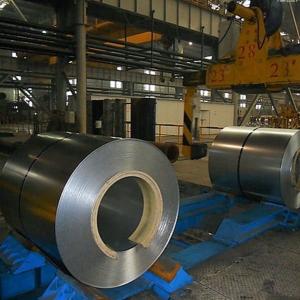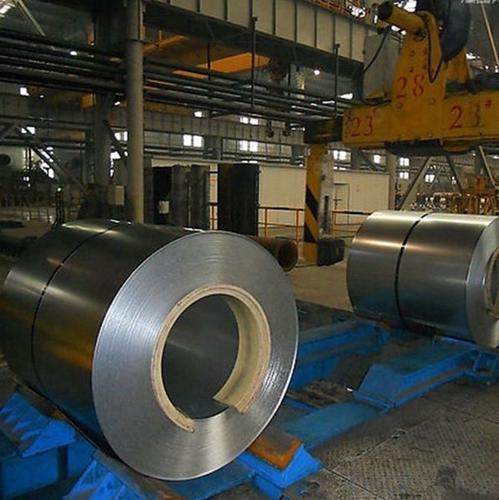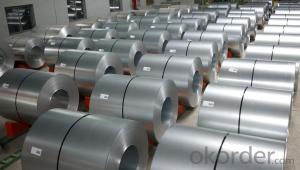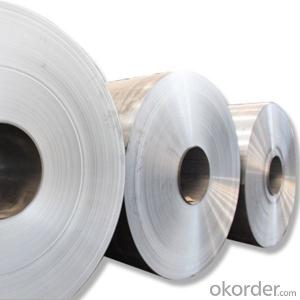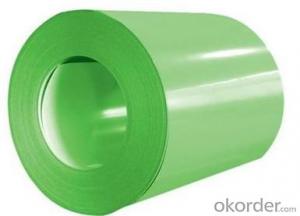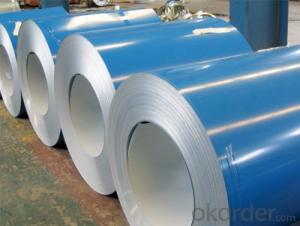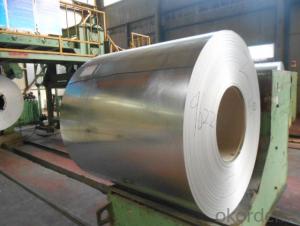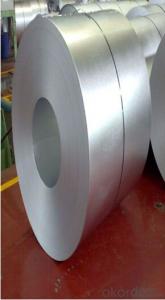304 Stainless Steel Coil Steel Plate Steel Sheet
- Loading Port:
- Huangpu
- Payment Terms:
- TT OR LC
- Min Order Qty:
- 25 m.t.
- Supply Capability:
- 10000 m.t./month
OKorder Service Pledge
OKorder Financial Service
You Might Also Like
Specification
Description for Stainless Steel Coils/Sheets:
Prodcut:Stainless Steel Coil
Thinckness: 0.20mm-8.0mm
Width:1000mm, 1219mm(4 feet), 1250mm, 1500mm, 1524mm(5 feet),
1800mm, 2000mm, 2200mm, 2500mm,and customizable
Ni:0.8~1.2% Cu:1.4~1.5% Cr:14
Standard: ASTM, JIS, GB, BS, DIN etc
Grade: 200series&300series&400series
Surface finish: 2B, BA, 8K, 6K, Mirror Finished, No1, No2, No4, Hair Line with PVC
Manufacture technology: cold rolled/hot rolled
Thickness Tolerance: +/-0.1mm
Width Tolerance: +/-10mm
200 Seriers: 201,202
300 Seriers: 301, 304, 304L, 316L, 309, 310S,321
400 Seriers: 410, 410S, 409L,430
Specifications for Stainless Steel Coils/Sheets:
Type | 200 series,300 series,400 series |
Thickness | 1.8-8.0mm |
Widthness | 1000/1219/1500mm |
Technique | Hot Rolled/Cold Rolled |
Coil Weight | About 20 Tons |
Finish | NO.1/NO.2B |
Place of Origin | Made in China |
MOQ | 18 ton |
Color | Black,Mirror Finished |
Standard | ASTM, JIS, GB, BS, DIN etc |
Exporting countries | Peru,India,Pakistan,Singpore,Vietnam,South Korea,Malaysia etc. |
After-sales service | Factory Inspection |
Certifications | ISO,SGS |
Packaging | Standard export packing or following customer's demand |
Specifications for Stainless Steel Coils/Sheets:
Grade | C ≤ | Si ≤ | Mn ≤ | P ≤ | S ≤ | Ni ≤ | Cr ≤ |
201 | 0.12 | 0.75 | 7.00 | 0.045 | 0.045 | 1.00-1.28 | 13.70-15.70 |
202 | 0.15 | 1.00 | 2.25 | 0.045 | 0.045 | 4.07-4.17 | 14.00-16.00 |
304 | 0.08 | 0.75 | 2.00 | 0.045 | 0.03 | 8.00-11.00 | 18.00-20.00 |
304L | 0.035 | 0.75 | 2.00 | 0.045 | 0.03 | 8.00-13.00 | 18.00-20.00 |
309 | 0.15 | 0.75 | 2.00 | 0.045 | 0.03 | 12.00-15.00 | 22.00-24.00 |
310S | 0.08 | 1.50 | 2.00 | 0.045 | 0.03 | 19.00-22.00 | 24.00-26.00 |
316 | 0.08 | 1.00 | 2.00 | 0.045 | 0.03 | 10.00-14.00 | 16.00-18.00 |
316L | 0.035 | 0.75 | 2.00 | 0.045 | 0.03 | 10.00-15.00 | 16.00-18.00 |
321 | 0.04-0.10 | 0.75 | 2.00 | 0.045 | 0.03 | 9.00-13.00 | 17.00-20.00 |
405 | 0.08 | 0.75 | 1.00 | 0.045 | 0.03 | 0.06 | 11.5-13.5 |
409 | 0.089 | 1.00 | 1.00 | 0.045 | 0.05 | 0.06 | 10.50-11.75 |
410 | 0.15 | 0.75 | 1.00 | 0.045 | 0.03 | 0.06 | 11.5-13.5 |
420 | 0.16-0.25 | 1.00 | 1.00 | 0.040 | 0.03 | 0.06 | 12.00-14.00 |
430 | 0.12 | 0.75 | 1.00 | 0.045 | 0.03 | 0.06 | 16.00-18.00 |
Detail picture for Stainless Steel Coils/Sheets
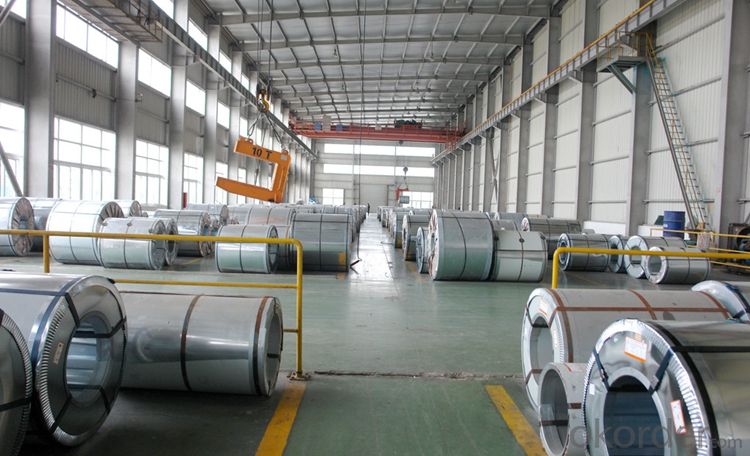
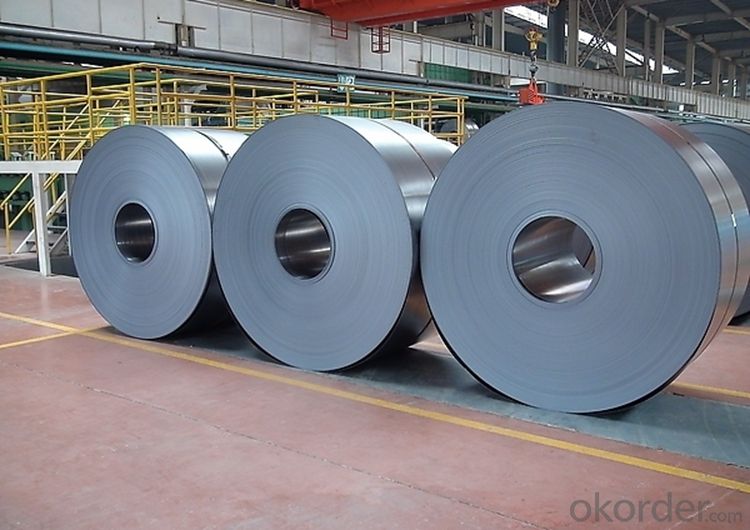
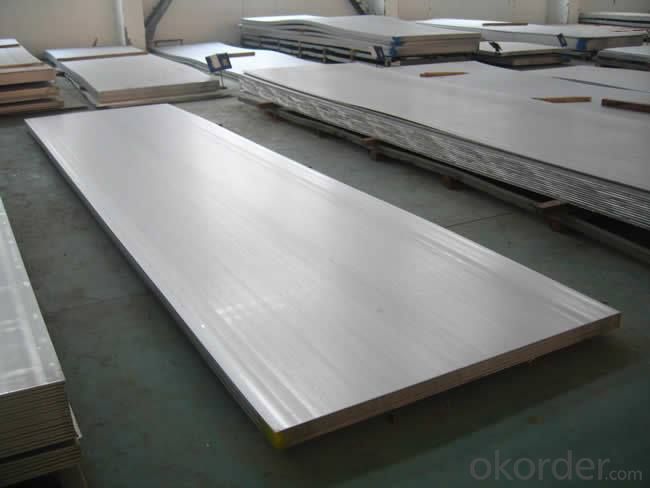
Application of Stainless Steel Coils
(1)Boiler heat exchanger,
(2)Chemical industries,
(3)Hardware fields,
(4)Construction material,
(5)Kitchen utensils,
(6)Building construction,
(7)Medical equipment,
(8)Chemical tank,
(9)Pipe etc
Export Markets for Stainless Steel Coils/Sheets:
Our target market is the international market. Every year we export most of products to countries like India, Pakistan, South Korea, Brazil, Australia, South Africa, Spain, Sri Lanka, Taiwan, Hong Kong, etc.
FAQ for Stainless Steel Coils/Sheets:
Q:How to order?
A: Please send us your purchase order by email or fax .or you can ask us to send you a proforma invoice for your order .We need to know the following information for your order.
1) Shipping information-company name, street address, phone number, fax number, destination sea port
2) Product information – Quantity, Specification (steel type, thickness, width, surface finish)
3) Delivery time required
4) Forwarder's contact details if there's any in China
FAQ for Stainless Steel Coils/Sheets:
Q:What are the advantages of your company ?
A: We have many professionals, technical personnel, more competitive prices and best after-dales service than other stainless steel companies.
Q:Can you arrange the shipment ?
A: Sure we can help you with the shipment. We have forwarders who have cooperated with us for many years.
- Q: I noticed a friend's appliances are not magnetic, and mine are. Both are stainless steel. Are there two types of stainless steel or something? Thanks
- Is Stainless Steel Magnetic
- Q: How are steel coils used in the production of metal furniture?
- Steel coils are used in the production of metal furniture as the primary raw material for shaping and forming various components such as frames, legs, and supports. These coils are unrolled and cut into appropriate lengths, then undergo processes like bending, welding, and shaping to create the desired furniture pieces. The strength, durability, and malleability of steel make it an ideal material for constructing sturdy and long-lasting metal furniture.
- Q: How are steel coils inspected for paint adhesion using adhesion testers?
- Paint adhesion on steel coils is systematically and rigorously inspected using adhesion testers. These testers are specifically designed devices for assessing the bond strength between the paint and the underlying steel surface. To begin the inspection process, representative samples are selected from the steel coils. These samples are typically cut into smaller sections to ensure they are free from defects or surface irregularities that could impact the adhesion test results. Once the samples are prepared, the adhesion testers are utilized to measure the force needed to detach the paint coating from the steel surface. The most commonly used adhesion tester is the cross-cut adhesion tester. It consists of a set of blades arranged in a grid pattern, which are employed to create cuts through the paint coating, forming a grid of squares or rectangles down to the steel surface. After the cuts are made, a specialized tape is applied to the grid area and pressed firmly onto the surface. The tape is then rapidly pulled off at a 90-degree angle to the surface, and the force required for the paint coating's removal from the steel is measured and recorded. The results of the adhesion test are evaluated based on predetermined standards or specifications. These standards typically define the minimum acceptable adhesion strength for the specific application or industry. If the measured adhesion strength falls below the specified threshold, it indicates poor paint adhesion, which could result in issues like paint delamination or corrosion. Along with the cross-cut adhesion tester, other adhesion testing methods may also be utilized, such as the pull-off adhesion tester. This method involves a hydraulic or mechanical device applying a tensile force to a small circular or dolly-shaped test area. The force required to pull off the dolly is measured and used to assess the paint adhesion. In summary, the use of adhesion testers ensures a thorough inspection of paint adhesion on steel coils. This process helps in early identification of potential adhesion issues, enabling appropriate remedial measures to be taken to ensure the durability and performance of the paint coating.
- Q: What are the different types of steel coil packaging materials for export?
- Some of the different types of steel coil packaging materials for export include wooden crates, steel crates, steel frames, steel racks, plastic wrapping, and cardboard boxes. These packaging materials are chosen based on the weight and dimensions of the steel coils, as well as the specific requirements of the export destination.
- Q: How are steel coils processed for slitting or shearing?
- Steel coils are processed for slitting or shearing by first uncoiling the coil and then feeding it through a slitter or shear machine. The machine applies pressure or cuts the steel coil into narrower strips or smaller pieces, respectively. This allows for the production of various widths or sizes of steel products, which can be used in different industries.
- Q: What is the role of steel coils in the production of fencing materials?
- Steel coils play a crucial role in the production of fencing materials as they serve as the primary raw material for manufacturing various types of fences. These coils are typically uncoiled, cut, and shaped into individual fence components, such as posts, rails, and pickets. The strength and durability of the steel make it an ideal material for fencing, ensuring that the final product can withstand harsh weather conditions and provide security for a long time.
- Q: Can steel coils be coated with fire-resistant materials?
- Yes, steel coils can be coated with fire-resistant materials.
- Q: Some stainless steel products are as shiny as chrome. Can all/most stainless steel be polished to a chrome like luster.
- depends on the amount on nickel used in the manufacturing but mostly yes
- Q: Which is used for what?Differences as far as style etc.???Better in your opinion and why??I'm just beginning to look at guitars i might be able to get at christmas if i'm still committed..i've been looking online.,,,,NYLON or STEEL STRINGED ACOUSTIC GUITAR????Thanks.
- u can play any type o music with steel stringed guitar.. but with nylon string ,guitarist usually pick the strings with finger nails,coz its will be hard to hit that with guitar picks coz there will be a chance of string popping nylon string gutiars are used for classical guitar playing... the tone is somehow sweeter on nylon.. but its up to you according to your music style
- Q: nylon sounds alot better but i want to keep the acoustic i have now. Is it proper to put nylon on an acoustic guitar meant for steel strings?
- Yes you can! The neck of the guitar will be fine if the tension is less (which it is for nylon strings). Knot the nylon strings about 3 times at the end then push through the bridge hole and push the pin down. The guitar will need tuning more regularly but the sound is great especially with a fibreglass bowlback (Martin Smith ?50 from E Bay). Through an amp it is awsome. A cheap fix. PS Don't wind around the winding post too many times as the extra tuning will stretch the strings.
Send your message to us
304 Stainless Steel Coil Steel Plate Steel Sheet
- Loading Port:
- Huangpu
- Payment Terms:
- TT OR LC
- Min Order Qty:
- 25 m.t.
- Supply Capability:
- 10000 m.t./month
OKorder Service Pledge
OKorder Financial Service
Similar products
Hot products
Hot Searches
Related keywords
